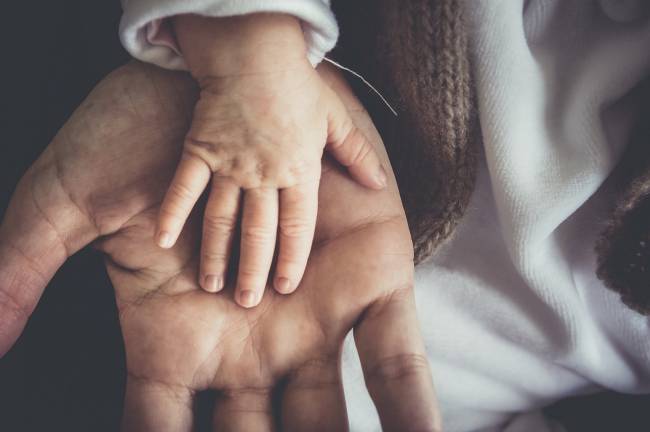You know you are a parent when all your cultural references are kid’s TV shows.
I was watching A Series of Unfortunate Events, the Netflix show about the tragic misadventures of the three Baudelaire children after the suspicious death of their parents in a fire. They are left in the dubious care of a murderous relative, Count Olaf who attempts to steal their inheritance and kill off any other family who attempt to help them.
But I got to thinking…
What would happen to my kids if I died…
I know, cheerful thoughts pre-breakfast…
I would want them to be cared for and be with people that I loved and that most importantly would love them. This is a big one, a real situation. We don’t like to talk about death but once you have children you really need to have a will in place and named guardians who would step up if the worst happened.
You don’t believe it will happen to you, but it did happen to a friend of mine, Gaëlle. She is incredible and brave and her husband died unexpectedly while her two girls were still very young. Gaëlle explained “We never thought that that time might come when we wouldn’t be around for our two daughters but six years ago, my husband died and I became a sole parent… that day, I realised that the need for guardians was becoming all too real”.
Gaëlle really considered her children’s needs when choosing a guardian drawing up a list of ‘requirements’. “I wanted a couple who maybe already had a child, who could provide a loving environment, and parents with similar values to ours.” Gaëlle chose her husband’s best friend and his wife, “he was already my youngest daughter’s godfather and had served with my husband in Iraq. I’m hoping that I will never have to call on them, but I feel reassured by the choice I made.”
I told Gaëlle I hadn’t yet chosen guardians for my two daughters and she emphasised that I really should. “In hindsight, choosing guardians for our children was possibly one of the most important decisions my late husband and I ever took.”

But what is a guardian’s role and who should I choose?
My next stop was the specialised advice of Sheetal Jethwa, Estate Planning Consultant at Vistaara Wills. I asked Sheetal some key questions and have shared her answers below.
Why is a guardian important?
Should you die without making a Will, or if you do not appoint Guardians in your Will, your children could be placed in care until the Court appoints official Guardians to look after them. This would obviously result in distress for your children and other members of your family.
Who should act as Guardians?
The normal choice is to appoint family members, particularly where very young children are involved. As children grow, the appointment of friends may be more appropriate as they are more likely to share your lifestyle and in these modern times live nearer than your family. It is usual (but not essential) that the same persons are appointed Guardians of all the children.
When the Guardians are to act only after the death of the surviving parent it is desirable that each parent should appoint the same persons to act as Guardian. It is, of course, important that the you should obtain the consent of the proposed Guardian. Although each parent can appoint different Guardians, it is worth remembering that both will legally act in the event of your death, so depending on who you have chosen, will impact on your children’s future.
You can also appoint different Guardians for different children, but this may mean splitting them up. Guardians must ensure that adequate contact between the children is maintained, but you may not be happy having your children divided in any way.
Who cannot appoint Guardians?
Unmarried fathers who don’t have parental responsibility cannot name Guardians, neither will they necessarily become Guardian should the mother die. If they wanted to ensure that they did, it would be necessary to enter into a written agreement to share responsibility with the mother, or apply to the Court. It would be possible for unmarried Fathers to become Guardians if appointed by the Mothers or by marriage.
How many Guardians do I need?
Care needs to be taken when considering appointing a ‘committee’ of relatives. The obvious disadvantages with a committee is that the wellbeing of your children may be overlooked and a committee can be difficult to manage. It is best to limit the maximum number of Guardians to two and can offer a familiar and stable environment. By all means appoint substitute Guardians, as this will ensure continuity if circumstances change.
What does a Guardian do?
The duties of a Guardian are essentially the same as those of a parent. They are responsible for the day-to-day upbringing of your child including holidays, birthday presents and all the everyday things that we take for granted. The terms of the Will should be such that the Executors and subsequently Trustees, can do all that is necessary to assist in financial terms.
What should I think about before I choose?
The role of the Guardian is a very responsible one and should not be entered into lightly. There will be financial, social and emotional implications taking on such a vast role and the matter should be discussed in detail before a decision is made.
Many parents will provide financial support for their children in the event of their death and although it may seem insensitive to explain this, it is a factor. Guardians may be able to claim child benefit and receive a Guardian’s allowance if both parents are Deceased.
There are circumstances under which the Guardian will be called upon when both parents are not Deceased in certain cases where: A surviving parent is unable to perform their role because they are overseas, in the army, in prison, disabled or mentally incapacitated, or after the death of the first parent, or they just refuse responsibility. A couple are Separated or Divorced and just one of the parents dies. The Guardian will act with the surviving parent and should disputes arise, they will have to be settled by the Court. The surviving parent is still considered the statutory Guardian.
What are the financial considerations?
Whilst the Guardians have the daily responsibility, it is better for the financial control to be handled by someone different, normally the Trustees of your estate. The two tasks demand different skills that may not always be found in the same person. It also means that the Trustees, the Guardians and, when they are old enough, your children, can share what can be difficult decisions.
In your Will, where your children are underage and are to benefit from your estate, you should nominate them as the Beneficiaries. In no circumstances should you nominate the Guardians – as mentioned above, the money will be held in Trust, and will be controlled by the Trustees for the benefit of the children.
There is no legal reason why you cannot appoint the same people as Executors, Trustees and Guardians if you wish, but you should be aware that there is a potential conflict of interest in that the Trustees are responsible for advancing sums of money held in Trust to the Guardians to help with Guardianship duties. However, if you have absolute trust in the people appointed, then do not allow this to concern you.

Thanks to Gaëlle and Sheetal for your personal and expert views. Choosing and appointing guardians is definitely on my list for 2020 and hopefully I can now go back to just enjoying some TV.






